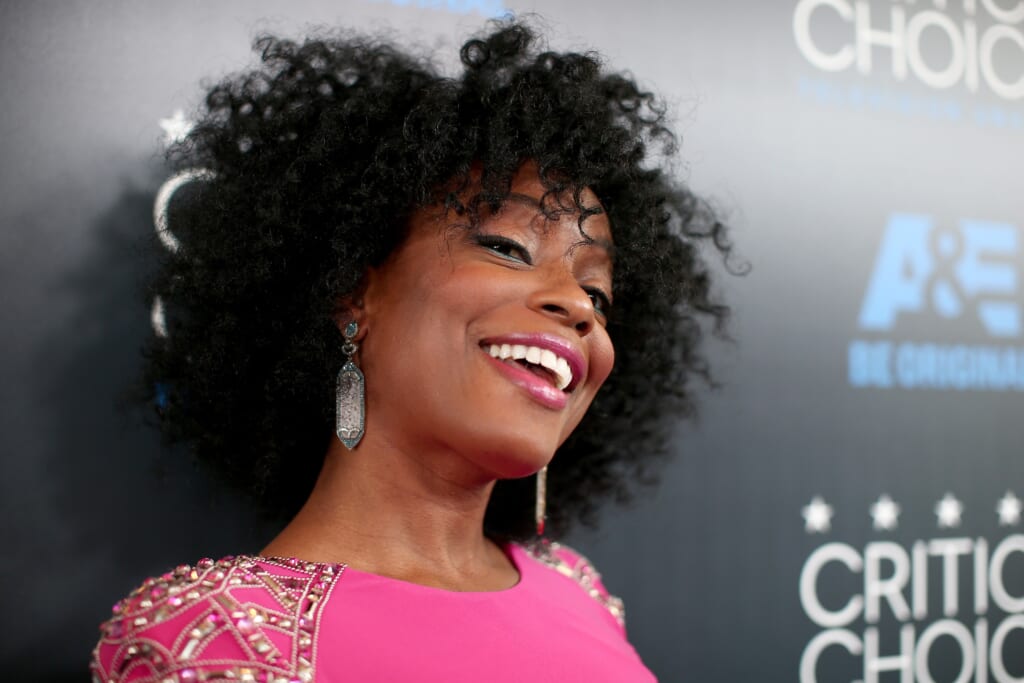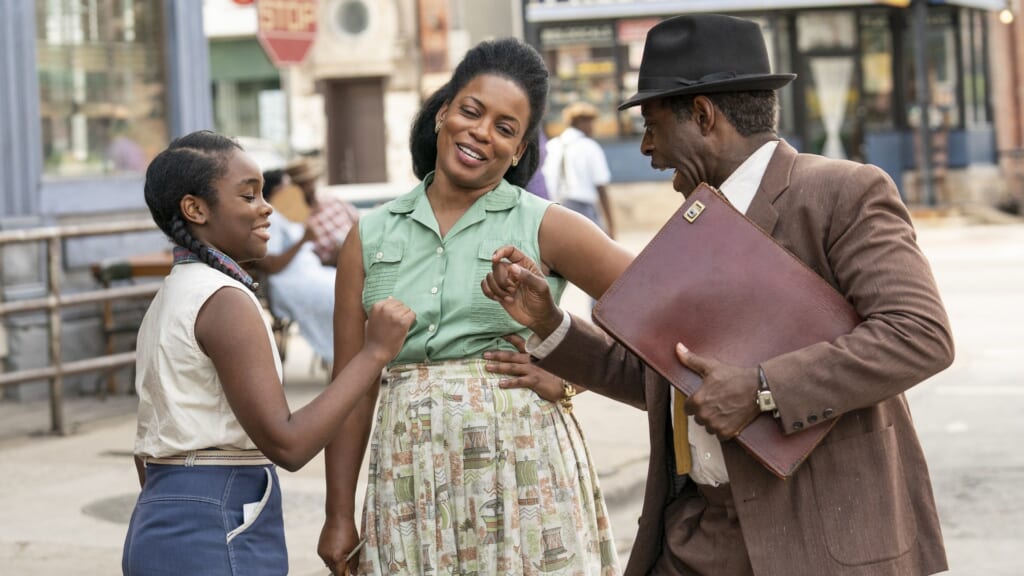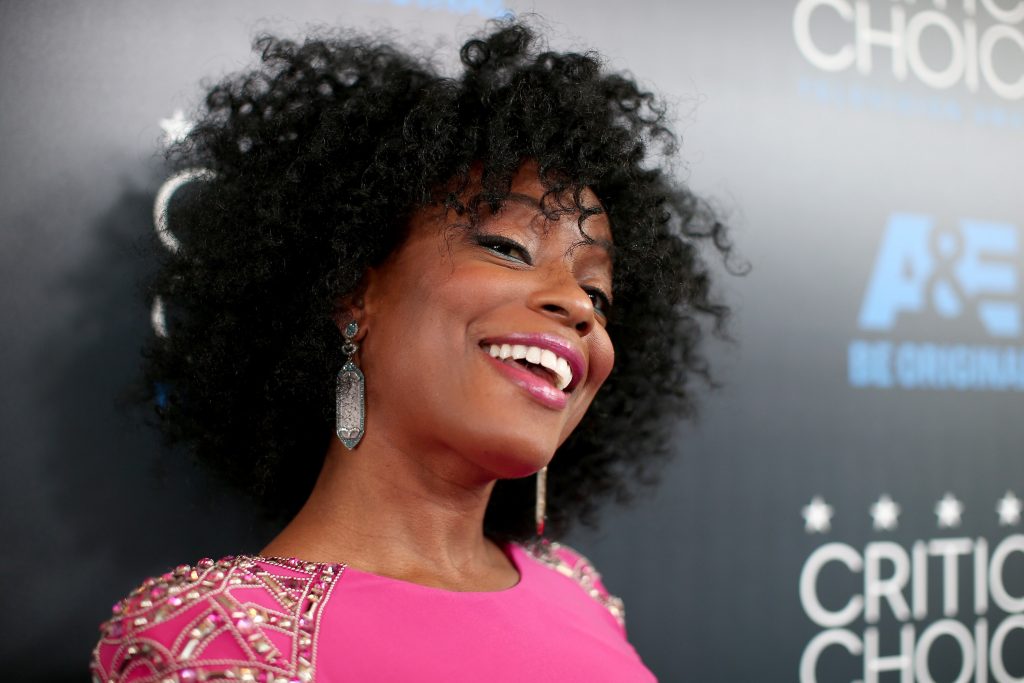‘Lovecraft Country’ star Aunjanue Ellis on pay inequity: ‘I struggle with not getting paid enough’
The veteran actress is nominated for two different roles at the NAACP Image Awards
Aunjanue Ellis has been a Hollywood mainstay for more than 25 years and the strength of her work is on full display at this year’s NAACP Image Awards where she’s nominated for two different roles.
The Lovecraft Country star nabbed a nod for Outstanding Supporting Actress in a Drama for playing Hippolyta Freeman in the HBO hit, now available on DVD and Blu-Ray with all-new bonus content.
She’s also up for Outstanding Actress in a TV Movie, Mini-series, or Drama Special for her turn as Mattie Moss Clark in Lifetime’s The Clark Sisters: First Ladies of Gospel.
Read More: Why ‘Lovecraft Country’ is exactly the show Black people needed
theGrio caught up with the talented star to find out how she’s handling awards season.
Ellis was an African American Studies major as an undergrad at Brown University before earning a spot at NYU’s prestigious Tisch School of the Arts. Those studies laid the groundwork for her future.
“I think that it made me what I am in terms of the kind of performer I try to be, which is really reflected in ‘Lovecraft,’ which is brave. What Brown University does better than I think any educational experience that I’ve had, if I can compare it to other schools, is that it insists that its students be brave,” Ellis says.
“When I went to NYU, NYU was not prepared. And like so many so many professional creative schools, they didn’t have any sort of real vision for their students of color, particularly their Black American students. They invite us in; they want the numbers, but they don’t know what the heck to do with us when we’re there.”

Ellis recounted a time when a white instructor told her to straighten her hair for a performance because she needed it to be “pretty.”
“To hear this white woman say this to me— what I had to say to her was, ‘My hair is pretty.’ This was before any sort of what we have now; a whole lot of cultural affirmation. There’s a movement of affirming Black American beauty, but that was not the case back then at all. So thankfully, I had that in my bones to sell that to tell that woman, ‘No, my hair is pretty. I am enough. I am enough just as I am.”’
Amid the racial reckoning the nation is experiencing, Hollywood has made a lot of promises to address the inequalities that continue to permeate the industry.
While Ellis acknowledges the progress made in certain areas, she insists there’s still a lot of work to be done.
“There are women who are directing and writing and their lot has improved and advanced tremendously, and I’m excited for that. Representation is not enough,” she says. “It is not enough for someone to be just Black and female and have those jobs. It is just not enough.
Ellis continued: “This trick of racism is so profound and so deep, and so saturated that there’s so much work to do to unlearn and unmoor all of that stuff. It affects the content that these Black showrunners choose to do. It affects who they cast. So let’s start there; that representation is not enough. It’s just not enough.”
Read More: Dr. Holly Carter speaks on Image Award noms and bringing her own seat to Hollywood’s table
While discussing the inequity for Black women in Hollywood, Ellis revealed that even after all of her accomplishments, she still struggles to get paid what she’s worth.
“My resume is relatively long. 90% of it, ain’t nobody’s seen, but what they have seen, it matters. And I struggle with and am certainly in the throes of struggling with not being paid enough. Compared to what my white contemporary counterparts; my white female contemporaries, what they get paid? Not in the same league.”
Ellis pointed out that even Oscar winners like Octavia Spencer still struggle to be paid fairly in Hollywood and it often takes their white costars to advocate on their behalf for equal pay.
“It’s not enough to have Black producers and directors if we are continuing the practice of disrespecting Black women when it comes to their pay. Disrespecting black women in how they are portrayed, all of that stuff. It is more than who’s in the room and who is in power positions. It’s a far greater consideration than that.”
We’re still waiting to see if Lovecraft Country gets the Emmy love it deserves. Ellis is keenly aware that awards and accolades matter in Hollywood more than they should.

“We can’t let their standards be our metrics for Black excellence. You kind of have to say those things to the world and to yourself in order to keep going. But the reality is, in terms of that paycheck getting bigger, those kinds of things matter,” she explains.
“Have you been nominated for things? Did you win? Those very tangible things put money in your pocket. Those metrics, their metrics, put money in your pocket. That’s just the case.
She adds, “As someone who wants to provide for my family in the way that they deserve to be provided for, I wake up in the morning and I go to bed at night thinking about it. It’s a preoccupation, but it’s a preoccupation because why is it that Black women still have to struggle with that?”
Check out the interview above.
For more with Ellis, check out this week’s episode of theGrio’s new podcast, Acting Up.
Have you subscribed to theGrio’s podcast “Dear Culture”? Download our newest episodes now!
TheGrio is now on Apple TV, Amazon Fire, and Roku. Download theGrio today!
The post ‘Lovecraft Country’ star Aunjanue Ellis on pay inequity: ‘I struggle with not getting paid enough’ appeared first on TheGrio.

